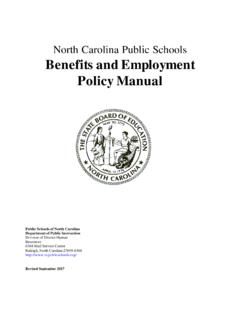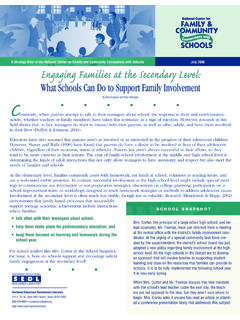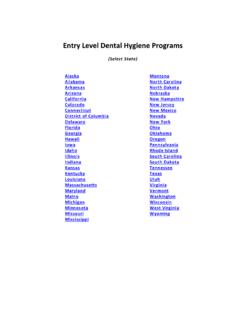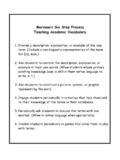Transcription of Emotional!Wellbeing!and!PSHE! Framework! …
1 Barnet Schools Wellbeing Programme Produced by Health Education Partnership Ltd page 1 Barnet Schools Wellbeing Programme Emotional Wellbeing and PSHE framework For Primary Schools Produced by Emotional Wellbeing and PSHE framework Page 2 Produced by Health Education Partnership Ltd Barnet Schools Wellbeing Programme Produced by Health Education Partnership Ltd
2 Page 3 Contents Introduction .. page 4 The national context of health and wellbeing in schools .. page 5 A whole school approach .. page 6 Within the curriculum .. page 7 Guide to the curriculum framework .. page 8 Delivery options and principles .. page 9 Delivery techniques .. page 9 Assessment .. page 10 Monitoring .. page 10 Evaluation .. page 11 Emotional Wellbeing & PSHE framework Overview .. page 12 Modules: Physical .. page 13 Modules: Sex & Relationships .. page 19 Modules: Social .. page 25 Modules: Emotional.
3 Page 31 Modules: Economic Wellbeing .. page 37 Modules: Being a Responsible Citizen .. page 43 Wellbeing and PSHE outside the curriculum .. page 49 School Ethos .. page 49 Leadership .. page 50 School Environment .. page 50 Staff wellbeing .. page 51 Pupil Voice .. page 52 Family Involvement and Support .. page 53 Anti- Bullying .. page 54 Community Cohesion .. page 54 Healthy activities .. page 55 The Arts .. page 56 Spirituality .. page 56 Directory of organisations and websites .. page 57 Directory of books .. page 67 Appendix 1: Thematic Map.
4 Page 88 Appendix 2: Ten Principles of PSHE Education .. page 89 Appendix 3: Examples of Active Learning Techniques .. page 90 Emotional Wellbeing and PSHE framework Page 4 Produced by Health Education Partnership Ltd Introduction The health and wellbeing of all pupils is at the heart of this scheme of work.
5 Education research is now steeped in studies that demonstrate the positive impact that emotional literacy and pupil resilience have on health and wellbeing, these having been identified as essential elements for emotional adjustment, personal wellbeing, fulfillment and interpersonal relationships. Over the past twenty- five years neurological research has increasingly supported this evidence. A commitment to developing emotional literacy and resilience in pupils is now known to increase and augment their intellectual and academic potential by enhancing attainment and achievement and by having a positive impact on behaviour at school.
6 In this respect, wellbeing and learning are very much two sides of the same coin, enhancing and enriching the other. As Jenny Fox Eades describes, Humans learn - it is part of what it means to be human. We are learning from our first breath until our last. And learning helps us to thrive, to grow, to flourish, it is essential to our wellbeing. Learning helps us to achieve wellbeing and achieving wellbeing helps us to learn (2012). The UK education system has, over the past ten years, seen a huge rise in initiatives that prioritise a focus upon pupils emotional health and wellbeing.
7 The Social Emotional Aspects of Learning (SEAL) initiative now sits alongside a number of other effective programmes aimed at developing resilience and social and emotional skills within all pupils. For example: n Rights Respecting Schools n Philosophy for Children (P4C) n Mindfulness initiatives, such as the Mindfulness in Schools Project and the Mind Up Curriculum n Relationship building approaches such as R- Time The number of programmes and resources available is comprehensive and diverse, which is encouraging for schools wishing to develop a health and wellbeing curriculum which can appropriately meet the needs of their pupils within their particular circumstance and demographic.
8 This Emotional Wellbeing and PSHE framework provides a flexible approach, which schools can follow completely or by which they can be inspired to develop their own curriculum. An extensive resource section of current and practical ideas, session plans and classroom projects are also supplied. In addition, the Department of Education for Schools has recently (30 January 2014) introduced mandatory timelines for all schools to publish their school curriculum by subject and year group by the Spring term 2014, including their provision of personal, social, health and economic education (PSHE). Barnet Schools Wellbeing Programme Produced by Health Education Partnership Ltd page 5 To support schools in developing their PSHE curriculum, the PSHE Association has published its own guidance on sex and relationship policies and a suggested programme of study for PSHE education.
9 We hope that this Emotional Wellbeing and PSHE framework will provide an additional breadth of support for schools in meeting and maintaining this mandatory guideline. The national context of health and wellbeing in schools In addition to the recently introduced mandatory curriculum timelines, as educators we assume both a statutory and ethical responsibility to provide opportunities within which a child s wellbeing can flourish. Part 2, section 10 of The Children Act 2004 places wellbeing within five categories. A positive school experience contributes significantly to each of these. n physical and mental health and emotional well- being; n protection from harm and neglect; n education, training and recreation; n the contribution made by them to society; n social and economic well- being.
10 The Children Act 2004 also provides Her Majesty s Chief Inspector (HMCI) the statutory responsibility to inspect the contribution of schools to pupil health and wellbeing. The recently updated Ofsted framework for School Inspection (2014) requires school inspections to identify: n the achievement of pupils at the school n the quality of teaching in the school n the behaviour and safety of pupils at the school n the quality of leadership in, and management of, the school. n the spiritual, moral, social and cultural development of pupils at the school n the extent to which the education provided by the school meets the needs of the range of pupils at the school, and in particular the needs of disabled pupils and those who have special educational needs.








